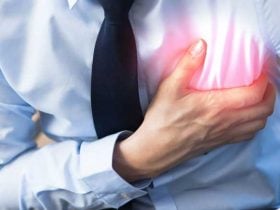What are the symptoms of coronary artery disease?

You will experience a wide variety of symptoms when the arteries carrying blood to the heart are blocked or impeded. The most experienced symptom of coronary heart disease is angina (chest pain). This chest pain can also be described as:
- Burning
- Heaviness
- Tightness
- Squeezing
- Chest discomfort
In some cases, the chest pain may be mistaken for indigestion or heartburn.
Other symptoms associated with coronary artery disease are:
- Dizziness
- Shortness of breath
- Sweating
- Pain in the arms or shoulders
If blood supply to the heart is more limited, you may experience other forms of symptoms. If a restriction in the artery completely cuts off blood flow, your heart muscles may start to die if adequate treatment is not received. Any blood flow restriction that affects your heart muscles may result in a heart attack. It is important to pay equal attention to these symptoms. Contact your healthcare provider immediately if a symptom is accompanied by excruciating pain or if it lasts longer than five minutes.
Women will experience the symptoms listed above. However, studies show that they may also experience unique symptoms that are easy to identify. These symptoms include:
- Nausea [5]
- Vomiting
- Back pain
- Jaw pain
- Shortness of breath without feeling chest pain
According to research, men are more susceptible to heart diseases, such as coronary heart disease than women. Reduced blood flow to your heart may also result in:
- Heart fatigue
- Irregular heart rhythms (arrhythmia) or abnormal rates that are unable to pump the required amount of blood needed in the body
It is important to contact your health care provider to help detect the abnormal heart changes during diagnosis.













